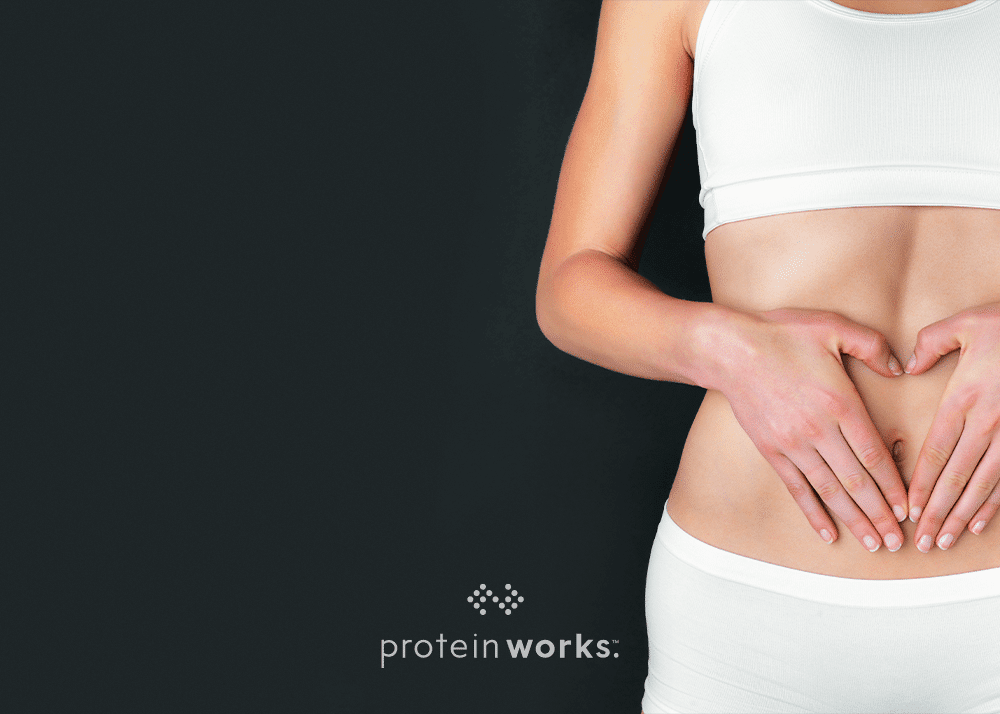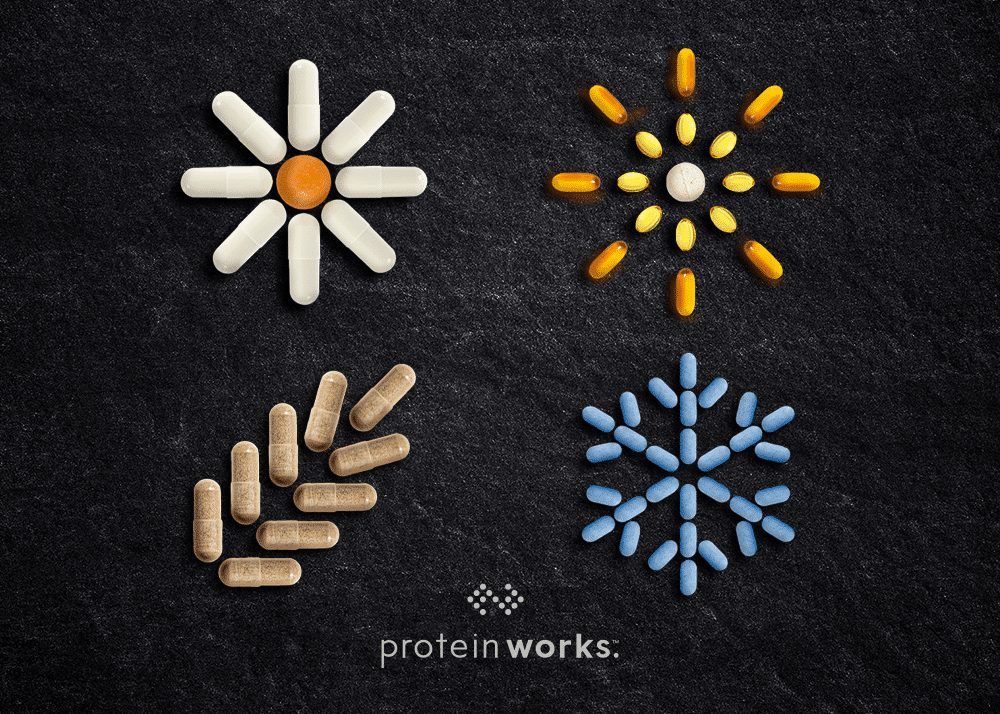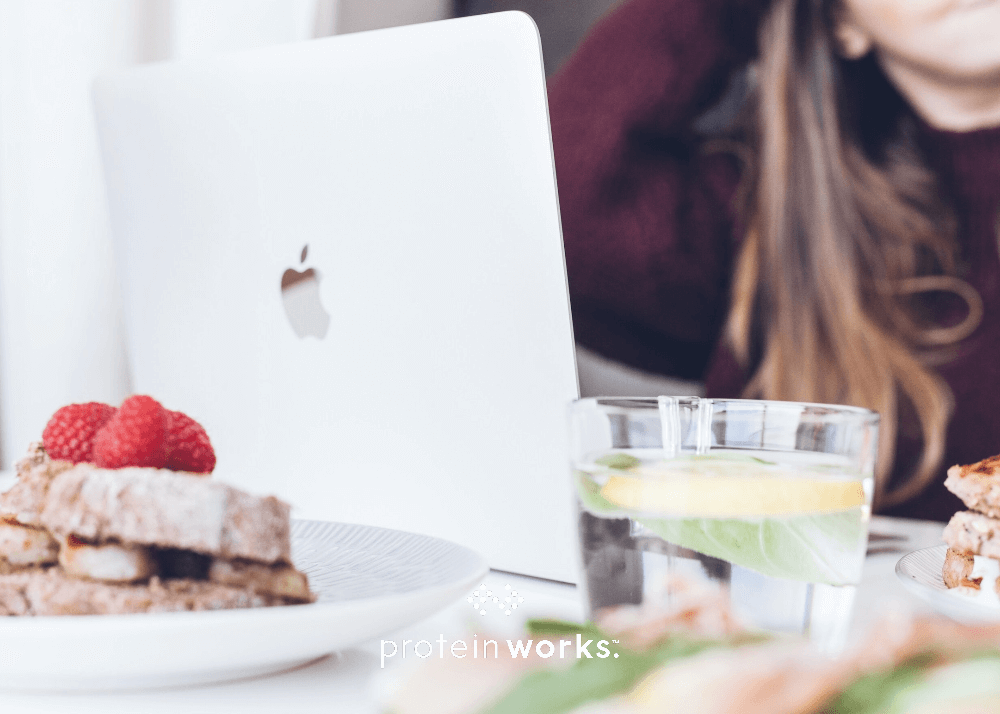
In a world where careers and lifestyles have evolved significantly, it’s time for our approach to nutrition at work to catch up. Research shows rising demand for people wanting to tailor their nutrition to their working day, with searches for ‘teacher meals’, ‘night shift food’ and ‘desk lunch’ all up by over +75% in the past month alone.
To help, we have developed the comprehensive Catering For Your Career guide, aimed to revolutionise the way we fuel our bodies to align with our careers and daily routines in the 21st Century.
But first, let’s reflect on where the classic three meals a day stemmed from and why it is no longer beneficial for the modern-day worker.
Find out more about how to adjust your nutrition to suit your career…
“Three Meals A Day” Started In The 17th Century…
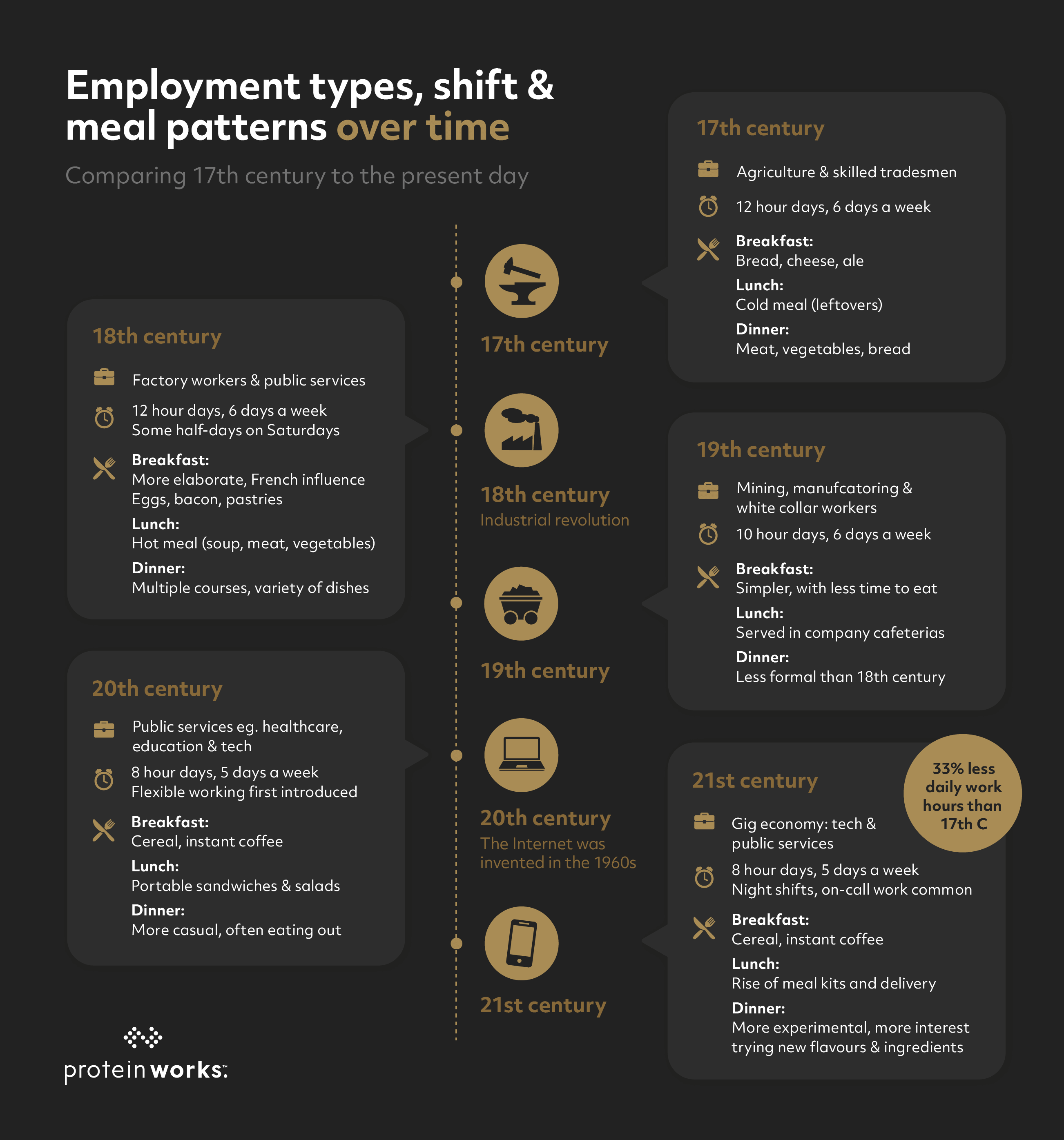
Nowadays, approximately 1 in 3 men and 1 in 2 women are not active enough to maintain good health (1), primarily due to the rise in more sedentary jobs, such as office-based roles and remote work setups. As well as this, scientific research has majorly evolved revealing how nutrition can help alleviate some of the health issues associated with certain shift patterns.
This disparity between our dietary habits and modern job roles is not only holding us back from peak performance but is also contributing to an increase in health issues. That’s why Protein Works has developed a nutritional guide based on the UK’s most common jobs and shift patterns to bring workplace nutrition into the 21st century.
Office-Based Day Worker: Focus On Small But Frequent Meals
People with standard 7.5-hour low-activity desk jobs, such as software development, administration, customer service, design, marketing, or accounting, may benefit from eating smaller, more frequent meals throughout the day. Opting for a meal structure comprising four meals during the workday and a total of six meals is optimal for individuals with sedentary jobs.
This structured approach not only caters to the time constraints faced by office workers who commute or work from home, it also provides a constant supply of energy, crucial for maintaining focus during extended periods of screen time. Additionally, this meal structure is gentler on the digestive system, making it particularly suitable for jobs that remain stationary at a desk.
Eating small but frequent meals helps combat issues associated with extended hours of sitting
When sitting for extended periods of time, it’s important to remember that your gut health may be more affected. This is because sitting promotes slower digestion and circulation making it harder for your body to absorb and transport important nutrients.
This, in turn, can affect your physical health, mood and overall productivity at work. Eating smaller and more frequent meals will be kinder to your digestive system as well as assist in maintaining your blood sugar levels throughout the day, leaving you feeling more energised.
Sedentary jobs also involve limited physical movement and are likely to expose workers to high-stress environments which has been linked to increased levels of LDL cholesterol.
However, scientific research also supports the notion that individuals who eat at least six times a day may see improvements in lower cholesterol, opt for healthier foods, maintain a lower body mass index and improve insulin levels (2) – all crucial health benefits for office workers who spend extended hours sitting at their desks.
Focus Foods
To support these recommendations, we have identified key foods to incorporate into your daily meals; foods that improve gut health, promote heart health, and enhance circulation as well as boost concentration and memory to help you excel at work.
 Meal & Snack Inspiration:
Meal & Snack Inspiration:
Light Easy Breakfasts followed by Light Lunches
Most people pressed for time in the morning will opt for something quick and easy: a quick bowl of cereal, a cereal bar, some toast.
However, these breakfast options aren’t the best way to start your day as they’re often rich in sugar and low in protein. To address this, opt instead for something like Protein Porridge 360 or Vegan Protein Porridge 360. Both are perfect options that require no hob: just add hot water and presto, you are done.
If you want an even quicker breakfast, consider having a breakfast shake that, in addition to protein and complex carbohydrates, also contains caffeine. A quick vegetable omelette is also an option for those who have more time in the morning before they set off to work.
During the day then, it is best to consume at least two light lunches. These can be composed of, e.g. fatty fish with leafy greens, or, again for those short on time but still wanting to get that protein in their diet (in addition to vitamins and minerals), they can turn to Savoury SuperMeals or Complete meal shakes.
Both are made in under 10 minutes and have all the nutrients your body needs to feel and perform at your best.
Highly Active Day Worker: Focus On A Filling Breakfast
Those working in more active and physically demanding roles, e.g. nursing, healthcare, construction, retail, teaching and waitressing may benefit from a more traditional approach.
Consuming three well-balanced meals daily, with a focus on a substantial breakfast packed with protein, fibre, and complex carbohydrates, can prove instrumental in curbing hunger, stabilising sugar levels, and ensuring one has a steady supply of energy throughout the day.
In hectic work environments, individuals might be tempted by quick fixes like crisps and chocolate bars to meet their energy needs promptly. However, prioritising a hearty breakfast significantly minimises the risk of serving afternoon slumps, as seen in our previous, and protects your performance in physically demanding active jobs.
Anti-inflammatory and flavonoid-rich foods can help counteract the effects of prolonged standing in active workers
As well as ensuring you keep high energy, maintaining your physical health in an active job is also essential. Research shows that people who are on their feet for prolonged periods of time, like active workers, are more likely to experience issues with lower back and leg pain, cardiovascular problems, fatigue and discomfort (3) on a regular basis.
One way workers can proactively mitigate these symptoms is to prioritise foods rich in anti-inflammatory properties and flavonoids in their diet. By aligning your diet with the demands of your job, it will help maximise both your performance and overall well-being in the workplace, enabling you to feel and perform at your best.
Focus Foods
To support these recommendations, we have identified key foods that complement physically demanding job roles including slow-releasing energy foods.
It’s also important to always remember to include in a hearty breakfast, as well as anti-inflammatory and flavonoid-rich foods to help maintain peak physical form.
 Meal & Snack Inspiration:
Meal & Snack Inspiration:
A Filling and Slow-Releasing Energy Meal to Start the Day followed by Lighter Lunches and Anti-Inflammatory and Flavonoid-Rich Snacks:
Starting the day with protein and complex carbohydrates is important for anyone leading an active lifestyle.
Ensuring you start your day fuelled with the right foods is extremely important to anyone with physically demanding jobs. Instead of choosing high sugar and low protein foods, opt for high protein breakfasts that deliver what you need in terms of vitamins, minerals, and slow-digesting carbohydrates.
Protein Porridge 360 or Vegan Protein Porridge 360 are perfect options, especially topped with nuts, fresh fruit, and/or peanut or almond butter. Poached eggs and avocado on toast are also a great idea, as are scrambled eggs with vegetables.
Lighter lunch options can then include tuna with lettuce, celery, and lemon dressing, or, again, Savoury SuperMeals or a chicken sandwich on high-fibre bread.
The best snack options are also often the simplest: a handful of nuts and a banana, a delicious protein bar like Loaded Legends (either vegan or not), berries and dark chocolate or a light complete meal shake that gives you the perfect balance of protein, carbs, fats, and fibre, ready in just 30 seconds.
Night Shift Worker: Focus On One Large Meal When You Wake Up
Shift workers represent between 15% and 25% of the modern-day workforce (4) and is any shift outside the traditional 9-5 workday, such as evening, early morning, and/or rotating. However, the shift pattern which is the most unnatural to our bodies are night shifts, occurring between the hours of 11 pm – 7 am.
Those working night shifts, such as key workers, would benefit most from having their largest meal when they wake up and ensuring this meal is full of high-satiety food. That way, they can remain full and cause as little disruption to their circadian rhythm as possible.
This should then be followed by high-immune boosting snacks and a light but filling sleep promoting meal before bed.
Light immune boosting snacks can help maintain energy levels without disrupting your natural circadian rhythm
Aligning meal times with the sun’s cycle significantly improves sleep quality and overall well-being. For night shift workers, concentrating on their largest meal between 7 pm and 9 pm reduces circadian disruption and promotes healthier sleep patterns (5).
Additionally, opting for light, immune-boosting snacks like nuts, seeds, shredded chicken, and avocado during their shift can help sustain energy levels, strengthen the immune system, and will help optimise their performance.
These practices not only enhance overall health but also protect the circadian rhythm. Research shows that disrupted sleep in shift workers heightens susceptibility to illnesses like the flu, highlighting the crucial role of these dietary strategies (6).
Focus Foods
Working a night shift can be tough on your body and mind so it’s important to eat the right foods at the right time. Focusing on immune-boosting, high-satiety and slow-releasing energy foods during your shift and sleep-promoting foods after your shift can be beneficial.
This is because it can help refrain workers from eating large meals in the early hours and encourage deeper sleep when clocking off in the early morning.
 Meal and Snack Inspiration:
Meal and Snack Inspiration:
High Satiety and Energy Releasing Breakfast (5pm -7pm) followed by Immune Boosting Snacks To Eat During Early Hours Of A Night Shift, with a light meal and drink after your short to improve your sleep quality:
Protein Pancakes or porridge would again be a great option for those working night shifts, to enjoy right before they head out the door. Scrambled eggs on a bagel or toast can also be a good option as they’ll keep you fuelled and ready to take on your night shift.
Consider also having a caffeine-based drink like Endless Coffee or Endless Nootropics as they will give your body the caffeine it needs with zero crash and zero sugar.
When it comes to snacks to enjoy during your snack shift, a trail mix of nuts and seeds (featuring almonds, walnuts, cashews and sunflower seeds, for example) are a great option, as are raw vegetables with a little pot of hummus.
Finally, right after your night shift, you’ll want to get your body ready to sleep. Having some slow-releasing protein at this time is perfect. This can be in the form of yoghurt with fruit, or cottage cheese on toast or rice cakes.
On-Call Shift Worker: Focus On Easy To Digest Foods
On-call shift workers, such as firefighters, doctors, and IT professionals, often need to eat quick, easy, and convenient meals and snacks. They should choose foods that are easy to digest, gentle on their digestive system and that will help them feel full for longer.
Focus Foods
Planning ahead is crucial for healthy eating as an on-call shift worker – planning meals and snacks ahead of time ensures that you have something healthy to eat right before or when you’re called in.
Choose easy-to-digest foods such as simple carbs, yoghurt, bananas and cooked vegetables – avoid raw veggies as they’re more difficult to digest. Lean protein sources, such as chicken, fish, or tofu will also help you to stay energised.
Performance is also important for on-call shift workers who need more energy to allow them to feel more awake and focused for longer. Portable drinks like Endless Nootropic can offer not only great taste but can also help keep you energised and in turn focused when on the go, without a caffeine or sugar crash.
 Meal & Snack Inspiration:
Meal & Snack Inspiration:
An Easily Digestible On-The-Go Meal followed by Easily Transportable Snacks:
A simple sandwich is quick and easy to make and can be transported if you need to eat on the go. Opt for white bread which is easier to digest than bread made with whole grains and a lean protein, such as chicken. Other ingredients like hummus, avocado, and raw or roasted vegetables will add additional nutrients.
When it comes to snacking, focus on foods that assist brain function is key to maintaining concentration levels at work. Choose caffeine based drinks like Endless Coffee or Endless Nootropic.
Dark chocolate and pumpkin seeds are great portable snack options too, with dark chocolate proven to improve cognitive function and pumpkin seeds being rich in omega-3 and help with immunity (7).
We offer a wide range of food and snacks for you to choose from and help you through the working day. And, if you want to learn more, check out our Nutrition Advice archives for more information.
Disclaimer: The Catering for Your Career guide is a helpful resource for people who want to tailor their nutrition to their individual careers and lifestyles. It provides meal suggestions for different types of workers, but it’s important to adjust these suggestions to fit your own preferences and dietary restrictions. The most important thing is to eat healthy and balanced meals that suit your individual needs.
References
(2) https://pubmed.ncbi.nlm.nih.gov/2674713/
(3) https://pubmed.ncbi.nlm.nih.gov/25041875/
(4) https://www.ncbi.nlm.nih.gov/pmc/articles/PMC5241621/#bib1
(5) https://www.ncbi.nlm.nih.gov/pmc/articles/PMC8148179



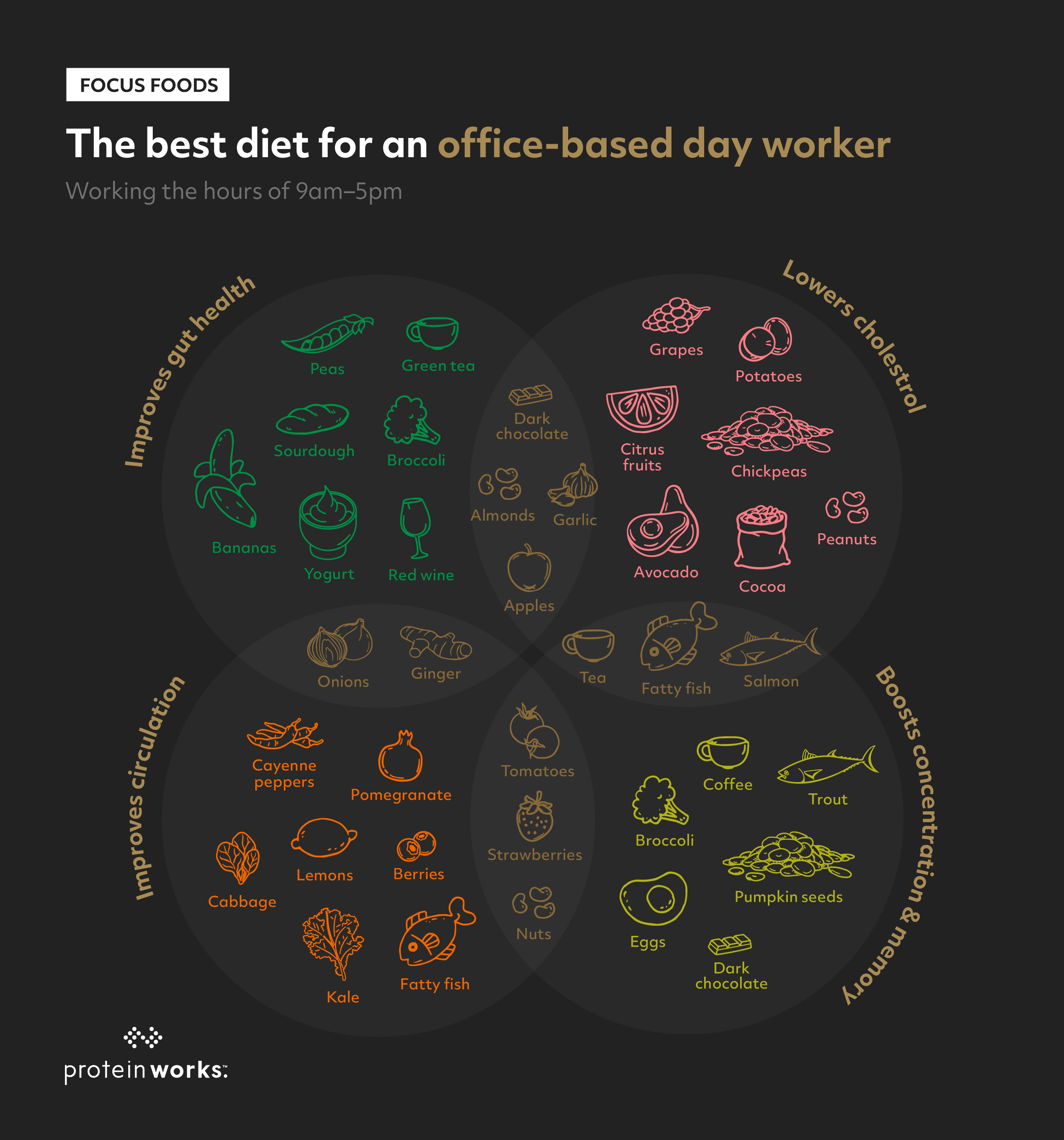 Meal & Snack Inspiration:
Meal & Snack Inspiration:
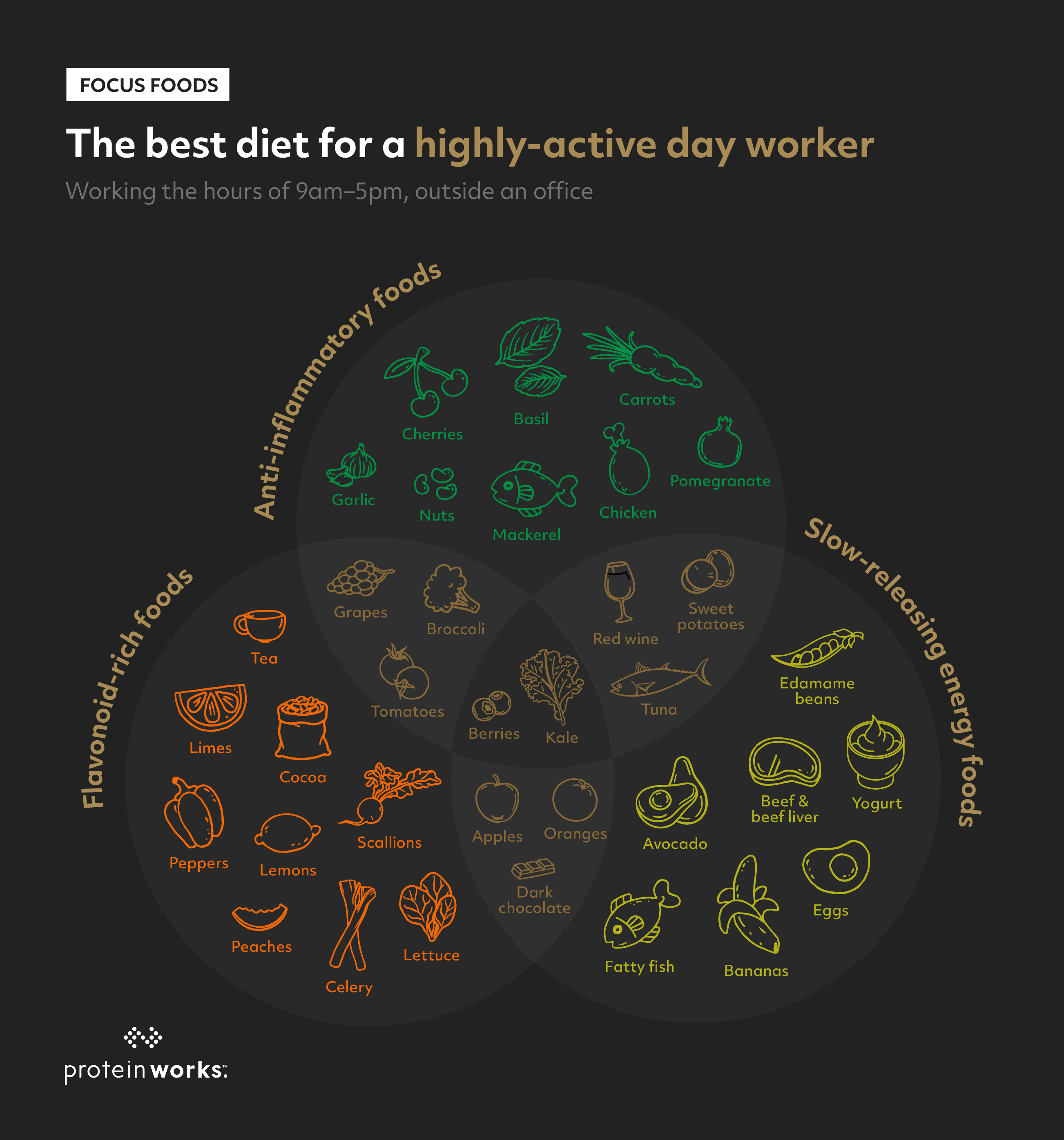 Meal & Snack Inspiration:
Meal & Snack Inspiration:
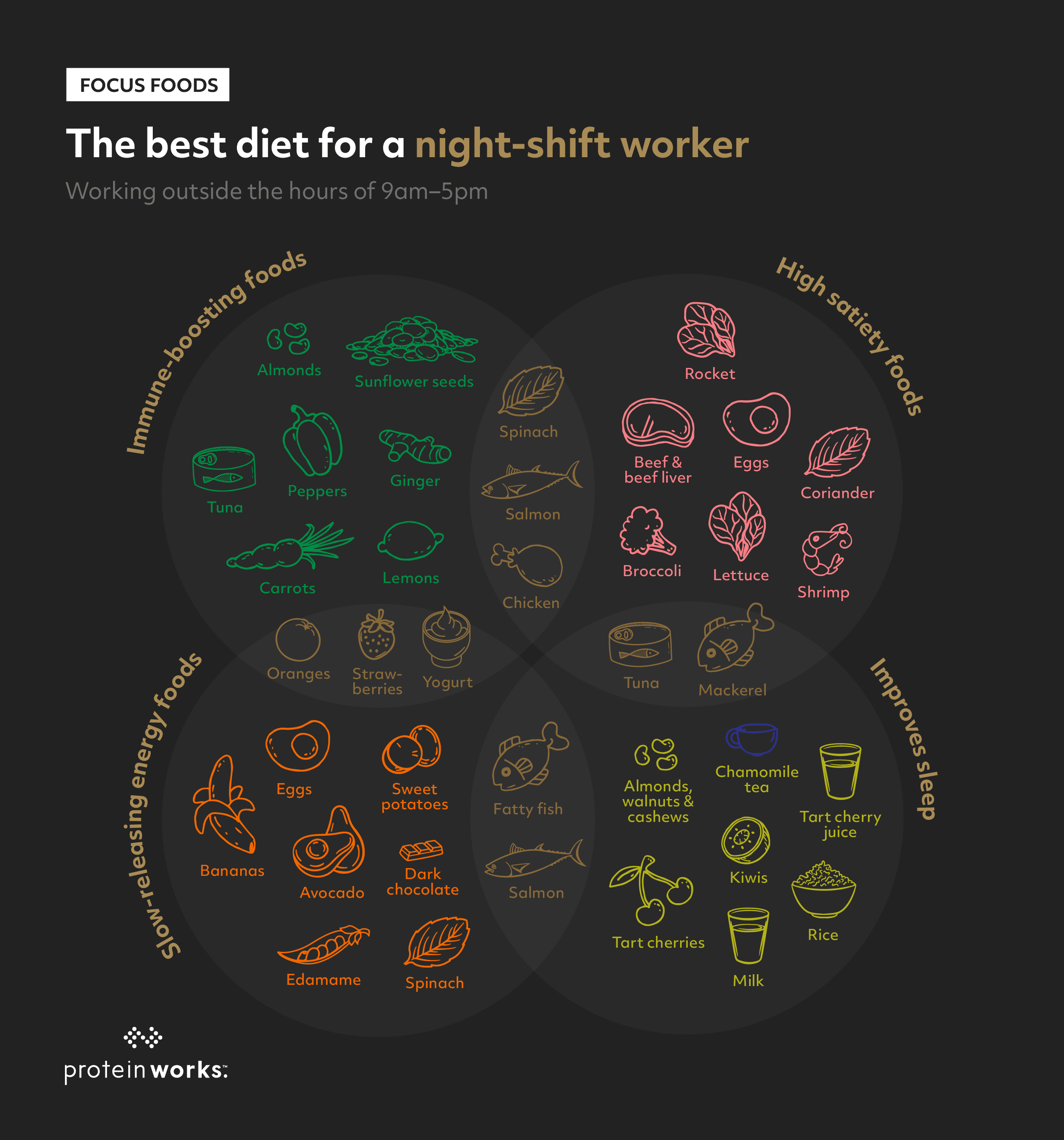 Meal and Snack Inspiration:
Meal and Snack Inspiration:
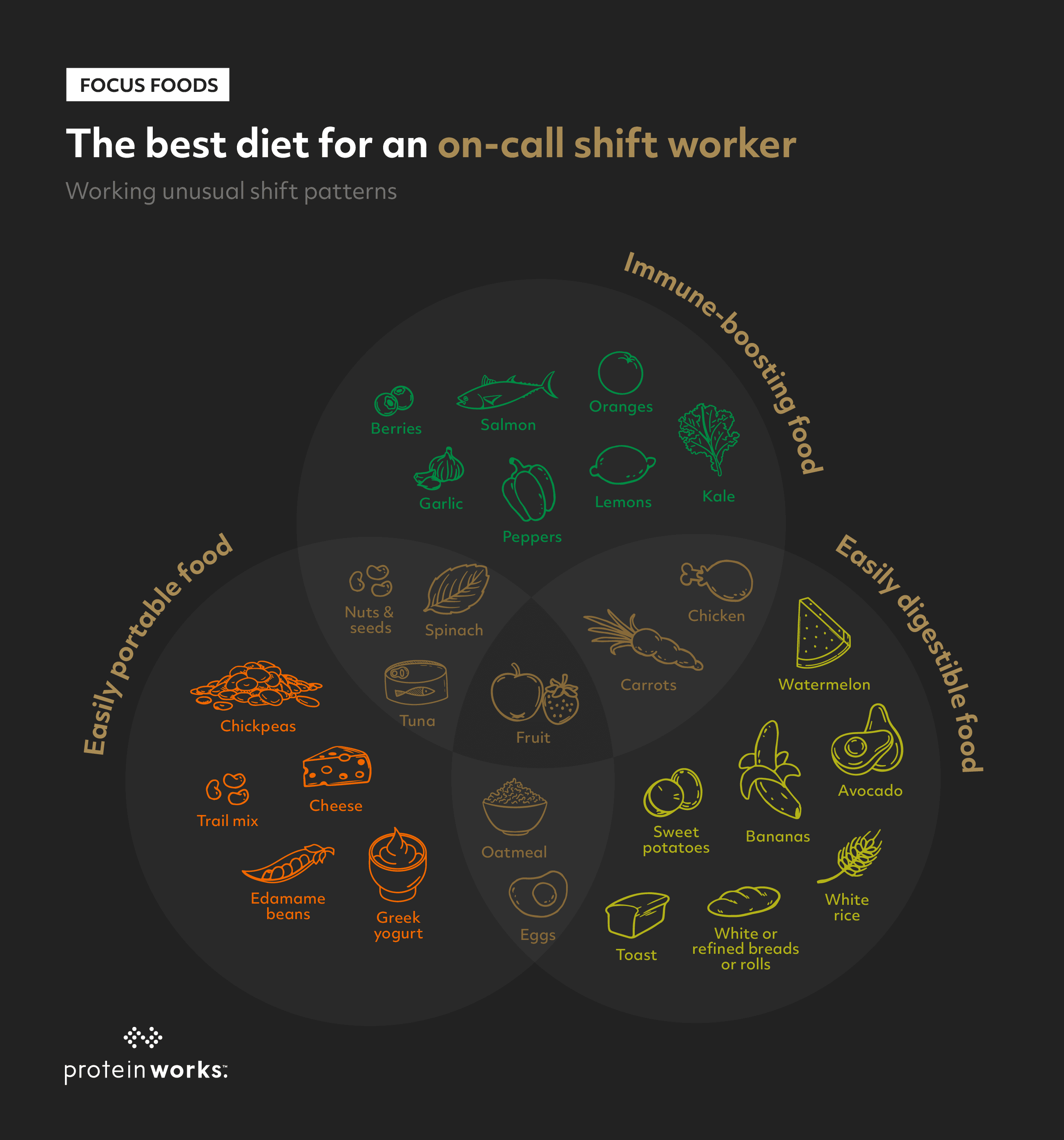 Meal & Snack Inspiration:
Meal & Snack Inspiration:
